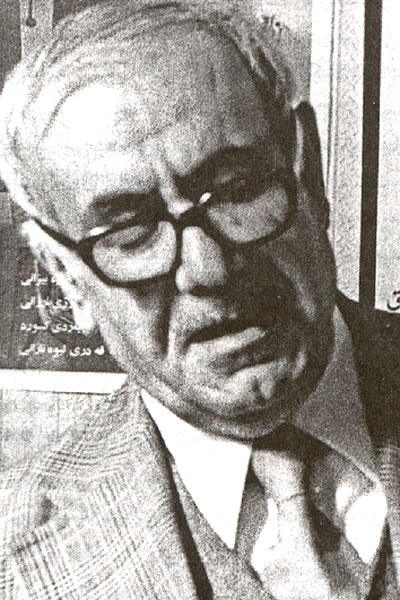Tu Ji Kê Derê Yî
Ji Elezîz, Bedlîs û Mêrdînê,
Zaza û Miks û Kilîs û Efrînê,
Dersîm, Erzirom, Erzinganê,
Bayîzd û Sêrt û Wanê,
Meletê, Dorinde û Bostan,
Diyarbekir û Cizîra Botan,
Westan û Xozat û Palo,
Mûş û Colemêrg û Mako,
Gênc û Keyf û Sarîqamîş,
Sêwreg û Dîlok û Mereş,
Amûdê û Dirbêsî û Şengal,
Ta Qamişlo û Serê Kaniyê,
Eskenderûn, Riha, Xarpêt,
Akrê, Mûsil, Emare û Kot,
Midyad, Amêdî, Duhok û Zaxo,
Kifrî, Kerkûk, Hewlêr û Ko,
Rewandiz, Helepçe, Mendelî, Dûz û Xaneqîn,
Şarê Kurd, Sine, Hemedan,
Kirmanşah, Seqiz, Hawraman,
Serdeşt û Bane ta Eşno,
Ta Wurmî û Dileman û Xoy,
Negede û Şapûr û Selmas,
Li her du berê Ava Erez,
Miyandaw û Senendej, Bokan
Mahabad û Silêmanî,
Ev in cî û warên me Kurdan,
Ev in welatê me û kal û bavan.Hejar (1920-1991)
Meletê, Dorinde û Bostan,
Diyarbekir û Cizîra Botan,
Westan û Xozat û Palo,
Mûş û Colemêrg û Mako,
Gênc û Keyf û Sarîqamîş,
Sêwreg û Dîlok û Mereş,
Amûdê û Dirbêsî û Şengal,
Ta Qamişlo û Serê Kaniyê,
Eskenderûn, Riha, Xarpêt,
Akrê, Mûsil, Emare û Kot,
Midyad, Amêdî, Duhok û Zaxo,
Kifrî, Kerkûk, Hewlêr û Ko,
Rewandiz, Helepçe, Mendelî, Dûz û Xaneqîn,
Şarê Kurd, Sine, Hemedan,
Kirmanşah, Seqiz, Hawraman,
Serdeşt û Bane ta Eşno,
Ta Wurmî û Dileman û Xoy,
Negede û Şapûr û Selmas,
Li her du berê Ava Erez,
Miyandaw û Senendej, Bokan
Mahabad û Silêmanî,
Ev in cî û warên me Kurdan,
Ev in welatê me û kal û bavan.Hejar (1920-1991)
Abdurrahman Sharafkandi, also known as Hejar, was born in the city of Mahabad, East Kurdistan. He was a renowned Kurdish writer, poet, linguist, and translator. He started writing poems in Kurdish around 1940. He was involved in the Kurdish movement led by Qazi Muhammad and was appointed as one of the official poets of the Republic of Mahabad in 1947. After the fall of the republic, he was forced into exile. For about 30 years, he lived in different countries such as Iraq, Syria, Lebanon and Egypt. In Iraq, he became involved in the nationalist movement led by Mustafa Barzani, with whom he developed a close friendship. In 1975, after the defeat of the movement, he moved back to Iran, and settled in the city of Karaj, where he lived until his death on February 22, 1990.
Two of his greatest works were the translation of Mem û Zîn from Kurmancî into Soranî Kurdish: Vergêra Mem û Zîn bi soranî, translation of Sharafnama from Persian into Soranî and his own work Dîwana helbesta Bu Kurdistan (Collection of Poems: For Kurdistan). He was one of the first people to also translate the Koran into the Kurdish Language. Like all Kurdish Legends Mamosta Hejar was forced from his homeland and around the world but ended back at his roots, even in his death. He is now buried in his home town of Mahabad, East Kurdistan where he was originally born.


